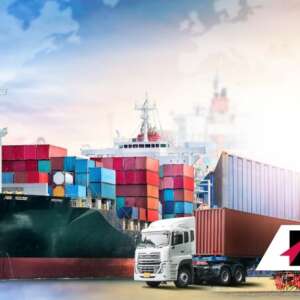The truck driver shortage in the U.S. often poses challenges for carriers who may not have an adequate number of drivers to meet their demand. Freight carriers sometimes use truck drivers who own and operate their own rigs for regular or special routes to move goods. Some owner-operator drivers use their own subcontractor drivers, particularly during peak seasons.
Employees vs. Independent Contractors
In 2019, the California law AB5 questioned whether a driver is considered an independent contractor or an employee of the carrier by creating a three-part test to determine how a driver should be classified. A truck driver’s classification comes with several different considerations, but the biggest issue is whether drivers who own their trucks and contract with companies to haul cargo should be considered employees with rights to minimum wages, overtime, and other benefits, or whether they should be considered independent contractors whose rights are limited.
The ABC test, which affects other industries other than truck drivers, requires that the following three criteria be met for a worker to be classified as independent:
- The worker must be free from the hiring company’s control and direction in performing the work.
- The work must be performed outside the hiring firm’s usual course of business.
- The worker must be engaged in an independent trade, occupation, or business.
The B portion of the test is the most difficult for independent contractors to meet, especially those who use independent contractors for regular routes. If an employer cannot establish these three conditions the AB5 Law requires the worker to be classified as an employee.
A Legal Battle Ensues
Many owner-operators have made significant investments in their own equipment so they could be self-employed and oppose AB5. The California Trucking Association (CTA) challenged AB5 in a lawsuit that stated that the U.S. Constitution’s supremacy clause and commerce clause pre-empted AB5 because federal law overrules conflicting state laws.
Since a trucking company operates between states, the lawsuit argued that AB5 does not apply to trucking companies. It also argued that AB5 conflicts with the Federal Motor Carrier Safety Act and the Federal Aviation Administration Authorization Act of 1994. These acts do not allow states to pass laws that affect motor carriers’ routes, pricing, and services. A preliminary injunction was placed by the U.S. Southern District Court that says that state officials in California cannot enforce AB5 and will remain in place until the trial for the CTA.
U.S. Supreme Court Weighs In
In the latest development, the U.S. Supreme Court has asked the Biden administration for a brief from the U.S. Solicitor General on whether the federal laws pre-empt the California law. The injunction will remain in place while the lawsuit goes through the courts. If the Supreme Court had denied the petition to hear the case the injunction would have been lifted which means 70,000 independent owner-operators would not be able to drive, which would add to the backlog at California’s ports. Enacting AB5 right now would cause further strain to the U.S. supply chain.
Some Truckers Want to be Employees
While most independent truckers have been vocal about retaining their independent status, there is a small group that would like to be considered employees. Port truckers have claimed they are wrongly classified and want to be considered employees. With the current injunction in place, many port truckers are waiting to see the outcome. The Teamsters union feels that regardless of the court outcome, port truck drivers have been misclassified for a long time. They argue that the injunction does not apply to port truck drivers, and they should be reclassified as workers immediately.
Beyond the Trucking Industry
If AB5 upholds, California carriers that use independent truck drivers to haul freight may need to reclassify drivers as employees and rethink their relationship with their drivers. As for other industries, the ruling strengthens the argument that federal law does not pre-empt AB5. Exemptions to the law are vague, which means additional time will be needed for the courts to clarify exemptions to AB5.
Your Trusted Partner
At Red Arrow Logistics, we provide expertise and white glove customer service with fast-growing, complex, and high-value supply chains. As the next-generation model of logistics companies, we offer tailored transportation and logistics solutions — from single shipments to complex over-dimensional and international orders.
Red Arrow offers the scale and scope of services including air, ocean, and ground transportation to meet the budget and schedule requirements of the largest and smallest companies alike. If we can be of assistance, please email us at info@redarrowlogistics.com or give us a call at 425-747-7914.





